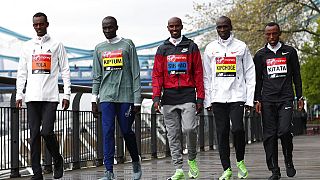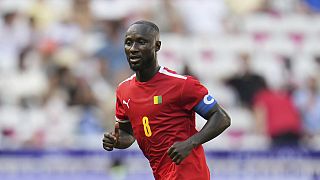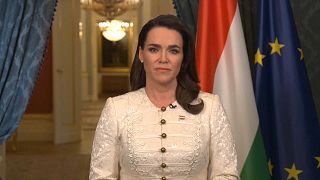Hungary
At the age of 20, Botswana's Letsile Tebogo gave the African continent its first-ever world medal in the men's 100 m, track and field's premier race, on Sunday in Budapest.
In the sweltering Hungarian heat, at the end of the home straight, Tebogo's personal best time of 9 sec 88 was only beaten by Noah Lyles, the face of world athletics, by five hundredths.
The achievement was significant enough that when it was announced at the press conference, it was greeted by applause from Lyles and the third sprinter on the podium, Britain's Zharnel Hughes.
Before him, a dozen or so, including Kenya's Ferdinand Omanyala in the final on the Hungarian track, had broken their teeth. The last to do so before the 2023 edition was South Africa's Akani Simbine, on three occasions in 2017, 2019 and 2022.
Tebogo has become a promise for world athletics beyond the African continent, becoming double world junior champion in the 100 m and double runner-up in the 200 m in 2021 and 2022.
Last year, when he was still 18, he became only the second runner in history to break the ten-second barrier in the 100 m before the age of twenty (with Bromell). A few months later, he broke the 20-second barrier in the 200 m.
Nevertheless, his world silver medal exceeded his own expectations. "I'm really proud to win this silver medal. This medal is a bonus for me. That wasn't the plan, the objective, it was just the final," admits Tebogo.
"Time for Africa to take control"
By way of comparison, the year he turned 21, Usain Bolt - his "idol" even if he doesn't "really remember watching him", because he "never thought he could make a living from athletics" as a child - didn't yet know what it was like to run the 100 m in under 10 seconds.
Before coming to athletics, which he only took up seriously around "2018-2019, when I realized I could become a professional", Tebogo, raised by a single mother with his younger brother, played soccer, "as a winger because of my speed". But the man who wrote a page in his continent's sporting history on Saturday ultimately preferred to play an individual sport.
"I think that after this medal, the continent and the country will think about organizing more races, and big races that people want to see," hopes Tebogo, who divides his training between Gaborone, the capital of Botswana, South Africa and Europe throughout the year.
He also dreams of one day hosting the Olympic Games on African soil, "so that people can come and see how beautiful Africa is".
"It's time for Africa to take control of sprinting on the international stage", he ventured in early 2022 to the specialist site Runblogrun. He, who will "try to reach the level" of Bolt, has taken the first step.











02:03
Muhammadu Buhari's legacy: higlight of his presidential tenure
01:01
Kenya: Visa-free travel now available for many African and Caribbean countries
Go to video
Paraguayan town celebrates vibrant Kamba Ra'anga festival with masks, fire and tradition
01:23
Hero's welcome for South African men's cricket team
01:47
Chinese city of Xuchang is world's biggest producer of wigs
01:15
U.S. considers adding more African countries to travel ban